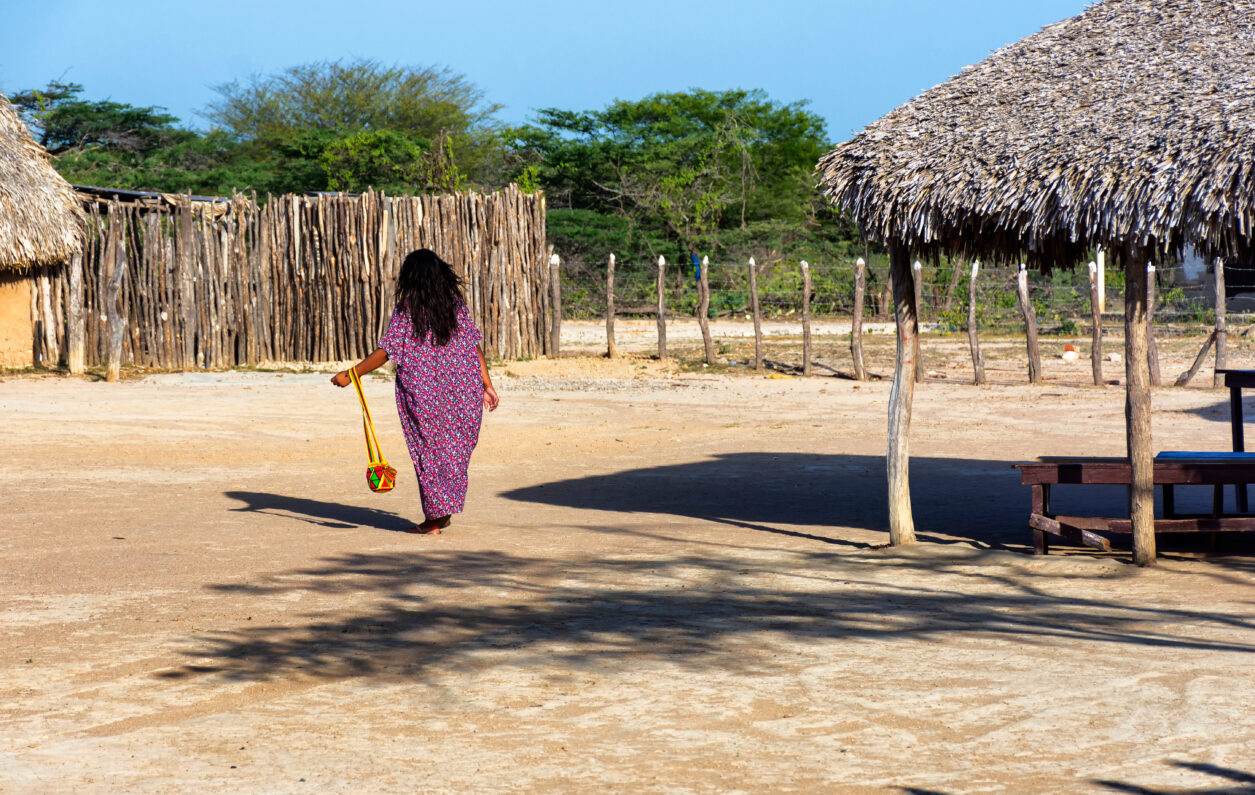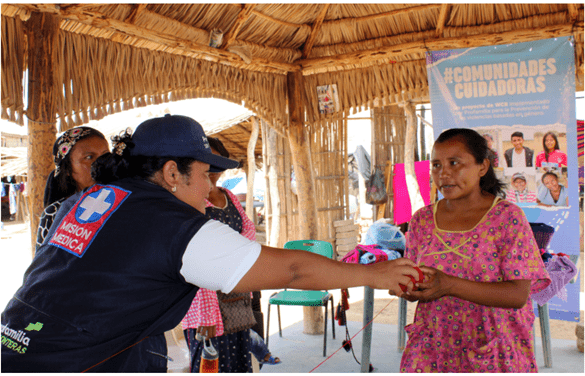Sexual and gender-based violence (SGBV) dramatically increases amidst conflict and crises. All people can experience SGBV—no matter their sex, age, gender identity, sexual orientation, or disability status. Yet programs to prevent and respond to SGBV are often limited. Survivors are often unable to obtain lifesaving, time-sensitive care, including emergency contraception and medication to prevent HIV, or to access critical psychosocial support and protection services.
Over the past 15 years, the Women’s Refugee Commission (WRC) has worked to bolster prevention and response programming for SGBV in humanitarian settings using innovative approaches to support survivors and their communities.
UNICEF’s “Communities Care: Transforming Lives and Preventing Violence” program is a comprehensive package of interventions to prevent and respond to SGBV in humanitarian settings. As part of the package, WRC worked with UNICEF to develop a toolkit to train community health workers to care for survivors of sexual and gender-based violence, and lead community outreach programming to raise awareness of the benefits of seeking care.
In 2021, WRC, alongside implementing partners Profamilia and Reproductive Health Uganda (RHU) and research partners Universidad de los Andes and Makerere University School of Public Health, launched a pilot project to engage community health workers to deliver community-based SGBV prevention and response programming in Colombia and Uganda. Across Uganda and Colombia, community outreach included dialogues with community leaders, information sessions, community fairs, sports and games, crafts, and dances, tailored to reach women, men, girls, and boys, people with disabilities, and, in Colombia, the local Indigenous community.
In Colombia, the project served Venezuelan refugees and forced migrants and Colombians in an informal settlement in La Guajira department, near the border with Venezuela. At the start of the project, La Guajira hosted more than 150,000 Venezuelan refugees and forced migrants – nearly 50 percent of whom identified as Indigenous. The majority of Indigenous people in La Guajira are members of the Wayuu community.
 A Wayuu woman walking. The majority of Indigenous people in La Guajira are members of the Wayuu community.
A Wayuu woman walking. The majority of Indigenous people in La Guajira are members of the Wayuu community.
There are significant humanitarian needs in La Guajira, for both Colombians and Venezuelan refugees and forced migrants. The poverty level is over 50 percent, and communities across the rural department lack access to adequate food, water, health services, and livelihoods opportunities. However, programming and services are rarely accessible for Indigenous people.

In LaGuajira, Colombia, a Profamilia community health worker and a community member participate in a community awareness raising activity to share information about gender-based violence, including how survivors can access different services. Credit: Profamilia
In designing the Communities Care (or in Spanish: Comunidades Cuidadoras) program, Profamilia centered Indigenous inclusion from the outset. Profamilia trained Wayuu community health workers and brought together Wayuu community leaders to shape program planning. Wayuu community members incorporated specific activities, including traditional Wayuu dancing and weaving, in the program. Wayuunaiki interpreters participated across program activities.
In reflecting on the program, community members highlighted the value of Indigenous inclusion, and play-based programming. Community members reported that program activities provided opportunities to get out of their daily routines and have fun. One woman described a program activity designed around the Yonna, a traditional Wayuu dance:
“People who attended…danced and explained during the process, how we could reflect on and demonstrate when there can be sexual violence within the dance and also within our community.”
Perhaps most notably, community members shared that it was the first time a program included Wayuunaiki-only speakers in the community.
At the end of the program, community members’ knowledge of available services for sexual and gender-based violence survivors had improved, as did attitudes toward seeking care and support. Community health workers also reported feeling prepared and supported to continue working with SGBV survivors.
From 35 years’ experience, WRC knows that successful, sustainable programming depends on meaningful participation and inclusion. The Communities Care project reinforces the importance of engaging communities in designing and implementing programs to ensure they are fit for purpose and have a lasting impact.
Lessons learned from Colombia can inform participatory approaches to SGBV program design and evaluation in crisis and displacement settings globally, supporting survivors in all of their diversity to access lifesaving care.
Complete evaluation findings will be available in early 2025. Learn more about the Communities Care project.

